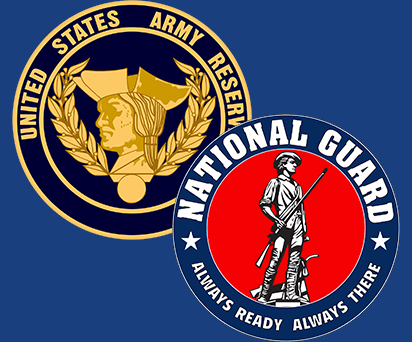
Service as a traditional reservist or National Guard member is not Active Duty Service and does not adequately establish Veteran status, which is defined in 38 CFR 3.1(d). National Guard and Reserve members are still eligible for VA disability compensation even though they do not meet Veteran status. This service, which includes performing one period of weekend drill monthly and two weeks of training every year, is referred to as IADT and ADT.
The US Military Force is approximately 2,083,100 personnel. Why this is important to know? The majority (61.5%) are full-time active service members. The National Guard and Reserve Forces, considered part-time service members, make up 801,200 (38.5%) of this number. There is a huge pool of Veterans needing assistance for a service-connected disability.
National Guard members must conduct the same training as their Active Duty counterparts. This puts National Guard members at the same risk for exposure as Active Duty service members.
Traditional National Guard and Reserve Servicemembers can apply for VA disability benefits before separation/retirement, which means they can receive immediate health care at the VA.
Bottom line: National Guard and Reserve Forces have earned the right to receive VA benefits
ce as a traditional reservist or National Guard member is not active service and does not adequately establish Veteran status, which is defined in 38 CFR 3.1(d). However, National Guard and Reservists are still eligible for VA benefits even though they do not meet Veteran status. This service, which includes performing one period of weekend drill monthly and two weeks of training every year, is referred to as IADT and ADT.
The US Military Force is approximately 2,083,100 personnel. Why this is important to know? The National Guard and Reserve Forces make up 801,200 of this number (38.5%). There is a huge pool of Veterans needing assistance.
National Guard members must conduct the same training as their Active Duty counterparts. This puts National Guard members at the same risk for exposure as Active Duty members.
Traditional National Guard and Reserve Servicemembers can apply for VA disability benefits before separation/retirement, which means immediate health care at the VA.
Bottom line: National Guard and Reserve Forces have earned the right to receive VA benefits.
Many National Guard and Reserve Servicemembers question if they are eligible for VA disability benefits from the VA. The short answer is yes, but certain criteria must be met. For the purpose of establishing entitlement to VA benefits, Veteran status may be established based upon active duty training (ADT) or inactive duty training (IADT) under certain circumstances..
Benefits available to National Guard and Reserve Servicemembers include:
National Guard and Reserve Servicemembers have different statuses, which can impact their eligibility for benefits. There are:
Servicemembers injured during IDT or ADT need to show evidence of duty status, which is usually a Line of Duty form (DD 261). Substitute for orders can be a Paystub (LES) documenting period of service, official order directing the member to a period of service, service treatment records documenting injury occurred during service, or NGB 23A, which is a retirement point document showing dates of training/duty.
Service records can most often be located with the State’s Transition Assistance Advisor (TAA).
VA Regional offices should attempt to obtain required records/information from the appropriate State Adjutants General Office before sending a request to the National Guard Bureau. This often does not happen, so reaching out to the TAA can prove ben
Servicemembers injured during IDT or ADT need to show evidence of duty status, which is usually a Line of Duty form (DD 261). Substitute for orders can be a Paystub (LES) documenting the period of service, an official order directing the member to a period of service, service treatment records documenting injury that occurred during service, or NGB 23A, which is a retirement point document showing dates of training/duty.
Service records can most often be located with the State’s Transition Assistance Advisor (TAA).
VA Regional offices should attempt to obtain required records/information from the appropriate State Adjutants General Office before sending a request to the National Guard Bureau. This often does not happen, so reaching out to the TAA can prove beneficial.
If you are a National Guard or Reserve Veteran who has been denied disability benefits, we can help. Call our team today to schedule a free case evaluation and take the next step in getting the VA benefits you deserve.
Our monthly newsletter features about important and up-to-date veterans' law news, keeping you informed about the changes that matter.